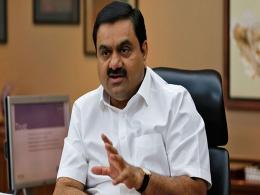India paid the price for a rupee lodged near record lows as inflation accelerated to a five-month high in July, putting more pressure on policymakers to take credible steps to reduce a crippling external deficit.
The headline inflation rate, measured by the wholesale price index (WPI), accelerated to 5.79 per cent annually in July from 4.86 percent in June, taking it above the Reserve Bank of India's comfort zone of 4 to 5 percent for the first time since March.
Resurgent inflation will make it even harder for the RBI to revert to a growth supportive stance, after tightening rupee liquidity in mid-July to brake the currency's fall.
Rupa Rege Nitsure, chief economist at Bank of Baroda in Mumbai, expected economic growth to weaken to between 4.8 per cent and 5 per cent in the fiscal year ending next March, below the decade low of 5.0 percent notched last year.
"The central bank's focus will remain on currency and financial markets stability even if that means a further risk to growth," Nitsure said.
The partially convertible rupee slipped to 61.45 per dollar on Wednesday, having failed to make any substantial recovery from an all time low of 61.80 struck on August 6, despite government proposals to curb imports, notably of gold and silver, and increase dollar inflows by having state-owned firms raise loans overseas.
The rupee is down 0.9 per cent since Finance Minister P. Chidambaram unveiled his plans on Monday and down 2.5 per cent since the Reserve Bank of India launched its major support effort on July 15.
With fears growing that India is headed into a phase of slowing growth and high inflation, 10-year bond yields surged to as high as 8.55 per cent, their highest in more than a year.
"Long-end yields are also going up, which will push up the government's cost of borrowing," Anjali Verma, economist at PhillipCapital brokerage in Mumbai.
"The central bank's steps are here to stay, and I do not rule out a rate hike if the rupee remains weak."
"Very Ugly"
Analysts said the bad news on inflation, particularly on prices for imported oil prices, was due to the rupee losing 12 per cent against the dollar since the start of May, and high food prices, despite a good monsoon, as the rains disrupted supply chains.
"The July print for headline inflation is very ugly with the major contributors being cereals, vegetables and fuel and power items," Bank of Baroda's Nitsure said. "Despite an acute slowdown in domestic demand, the manufacturing prices have remained elevated due to rising input costs on account of massive depreciation of rupee."
The authorities fear further falls in the rupee will exacerbate the current account deficit in the short term, deter investment and put a further brake on slowing economic growth.
The inflationary effect of a weak rupee could have consequences for Singh's Congress party, as it heads toward an election due next year against the BJP that could be under new leadership.
The higher cost of imported goods will hurt middle class Indians whose spending power soared during the earlier years of high growth, while the millions of poor families will suffer from rising prices for basic commodities.
With the stakes rising, investors are waiting for details of the government's plan to tax imports of non-essential items, while the RBI is expected to spell out how banks will be allowed to attract deposits from Indians abroad.
The need to bolster confidence has become more pressing. Foreign investors have sold a net $11.6 billion in debt and equities since late May, a bad omen given emerging markets could weaken further given the growing prospect that the U.S. Federal Reserve will begin tapering its monetary stimulus.
Ultimately, analysts say Singh's minority government will need to implement bolder reforms to restore the economy, notably to improve the investment climate and expedite infrastructure projects, but there remain grave doubts about its ability to take unpopular steps the closer it gets to an election.






